Sprayer tyres, Rice transplanter tires and wheels, Agricultural tyres, tractor tires, Industrial Tyres, OTR Tires, skid tires, truck tires
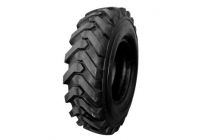
When it comes to farming, having the right tools and equipment can make all the difference. And one of the most important tools for any farmer is their agricultural vehicles. Farm tires not only have to withstand harsh terrain and heavy loads, but also play a crucial role in the overall function and appearance of a farm vehicle. This is why it is important for tire manufacturers, such as Bostone, to conduct thorough appearance and functional tests on their farm tires before bringing them to market.
The appearance of a farm tire may not seem as important as its functionality, but in reality, it plays a significant role in the overall aesthetics of a farm vehicle. Think of a beautifully maintained farm, with lush green fields and well-kept barns. Now, picture that same farm with rusty and worn-out tires on its vehicles. It’s not a pleasant sight, is it?
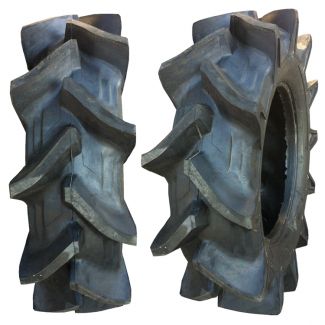
This is where the importance of appearance testing comes in. Bostone understands that farm tires need to not only perform well, but also look good. Appearance testing involves checking for any imperfections or defects in the tire’s physical appearance. This includes evaluating the overall shape and alignment of the tire, as well as the quality of its surface, sidewalls, and treads. Any cosmetic defects, such as scratches, cuts, or bulges, can greatly impact the tire’s performance and even lead to potential safety hazards for the farmer.
In addition to evaluating the tire’s appearance, functional testing is equally important. This involves assessing the tire’s performance in various scenarios, such as on different terrains, under different loads, and in different weather conditions. Bostone conducts rigorous testing to ensure that their farm tires can endure the demands of everyday farming activities.
Traction Test
One of the key performance tests for farm tires is the traction test. This involves measuring the tire’s ability to hold onto the ground and maintain grip in wet and slippery conditions. Traction is crucial for farm vehicles, as they often have to navigate through muddy fields or wet terrain. A tire with poor traction can easily slip, causing the vehicle to get stuck or lose control, which can be dangerous for the farmer and their crops.
Load capacity testing
Load capacity testing is another critical aspect of functional testing. As farm vehicles are used to carry heavy loads, it is essential for their tires to bear the weight without any issues. Bostone conducts extensive load capacity testing to determine the maximum weight that their farm tires can safely handle. This ensures that farmers can rely on their farm vehicles to carry and transport heavy equipment and materials without the risk of tire failure.
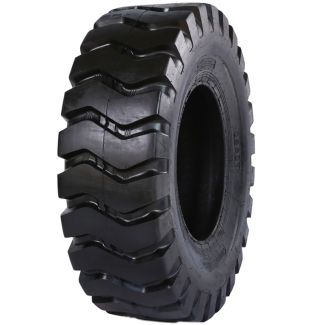
Durability and resistance testing
Durability and resistance testing are also key factors in evaluating the functionality of farm tires. Bostone uses specialized equipment and techniques to simulate the rough terrain and constant wear and tear that farm tires endure. This allows them to determine the tire’s resistance to punctures, cuts, and other damages, as well as its overall durability. A long-lasting tire not only saves farmers money, but it also improves their productivity as they don’t have to constantly replace their tires.
Appearance
Aside from performance and safety, the appearance and functionality of farm tires also play a significant role in the efficiency of a farmer’s operations. A worn-out tire with low tread depth will cover less ground with each rotation, resulting in lower efficiency and increased fuel consumption. On the other hand, a well-maintained tire with good tread depth and traction will provide better fuel economy, allowing farmers to cover more ground in less time.
At Bostone, our commitment to providing high-quality farm tires extends beyond appearance and functional testing. We also conduct extensive research and development to continuously improve our tire designs and ensure that they meet the ever-changing needs of the farming industry. Our team of engineers and experts work closely with farmers to understand their specific requirements and develop tires that can withstand the demands of their daily tasks.
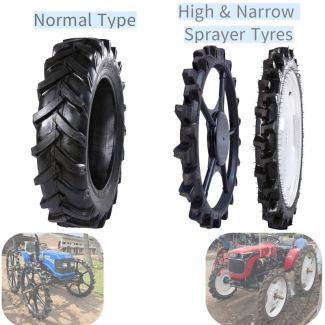
Appearance and functional testing are crucial steps in the manufacturing process of farm tires. We understand the importance of both aspects and conduct thorough testing to ensure that our tires not only perform well, but also look good and contribute to the efficiency and safety of farming operations. With our commitment to quality and continuous improvement, we strive to provide farmers with the best possible tires to support their hard work on the farm.
Related Q&A:
● Tractor tires: These are the most common type of farm tires and are used on tractors, combines, and other heavy farm equipment.
● Implement tires: These tires are designed for lighter farm equipment such as seeders, spreaders, and mowers.
● Harvest tires: These tires are designed specifically for use on harvesters and are able to withstand the weight and stress of harvesting crops.
● Backhoe tires: These tires are used on backhoe loaders to provide traction and stability for digging and moving earth.
● Skid-steer tires: These tires are used on skid-steer loaders and other compact equipment, providing traction and stability for maneuvering in tight spaces.
● ATV/UTV tires: These tires are used on all-terrain vehicles (ATVs) and utility vehicles (UTVs) for farm tasks such as hauling feed, fertilizing fields, and checking crops.
● Trailer tires: These tires are used on farm trailers for transporting equipment, livestock, and other materials.
● Sprayer tires: These tires are specially designed for sprayers to provide traction and stability when spraying crops.
● Irrigation tires: These tires are used on irrigation equipment, which often needs to traverse over wet, muddy areas on the farm.
● Flotation tires: These wide, low-pressure tires are used on equipment such as sprayers, spreaders, and wagons, to help prevent compaction in the fields.
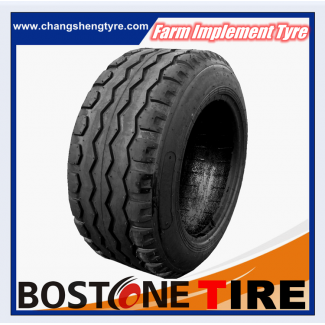
1. Construction: The main difference between bias-ply and radial farm tires lies in their construction. Bias-ply tires have multiple layers of rubber and fabric overlapped at an angle of 30 to 40 degrees, making them strong and rigid. On the other hand, radial tires have layers of rubber cords that run perpendicular to the direction of travel, which makes them more flexible and allows the tire to conform to the ground.
2. Sidewall Ply: Bias-ply tires have a sturdy sidewall construction due to overlapping layers, which makes them better at handling heavy loads and resisting punctures. Radial tires have fewer sidewall layers, making them more susceptible to punctures.
3. Tread Design: Bias-ply tires typically have a deep and narrow tread pattern, which provides good traction in soft and muddy soil. Radial tires, on the other hand, have a wider and shallower tread pattern, which is better for providing better traction on hard surfaces and reducing soil compaction.
4. Comfort: Radial tires have a more flexible sidewall construction, which allows them to absorb shocks and bumps better than bias-ply tires. This results in a smoother ride and less driver fatigue. Bias-ply tires have a stiffer sidewall, which can result in a harsher ride.
5. Fuel Efficiency: Radial tires have a lower rolling resistance due to their flexible sidewall construction, which makes them more fuel-efficient compared to bias-ply tires.
6. Load Capacity: Bias-ply tires have a higher load capacity than radial tires due to their sturdier construction. This makes them better suited for heavy-duty applications such as plowing, hauling, and towing.
7. Cost: Bias-ply tires are generally less expensive than radial tires, making them a more economical option for those on a tight budget.